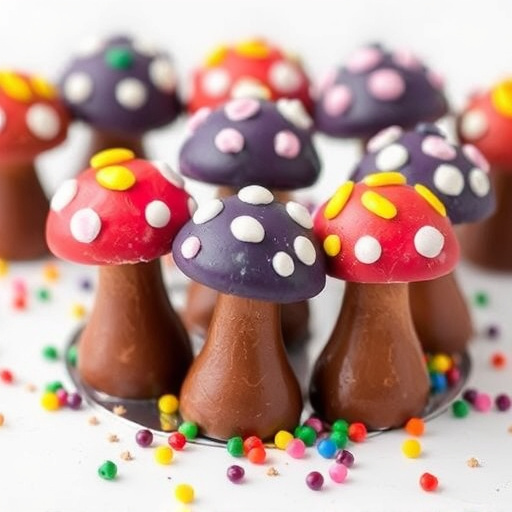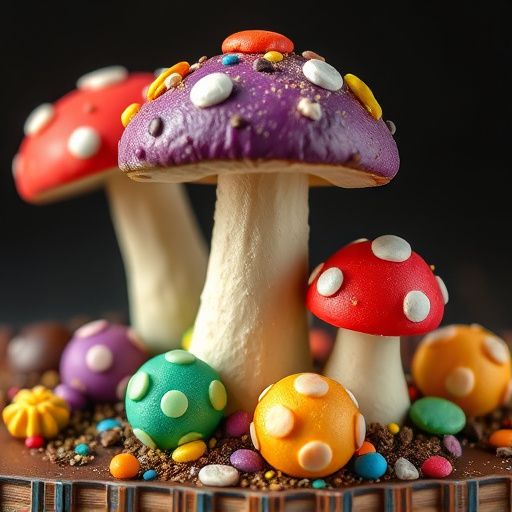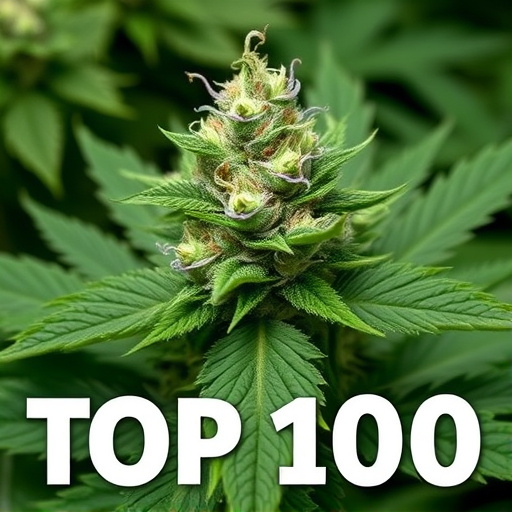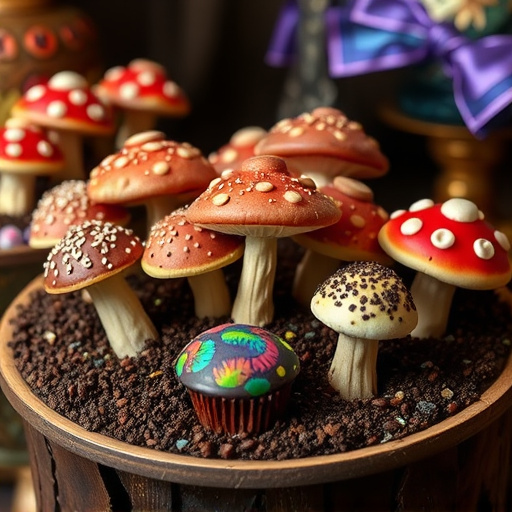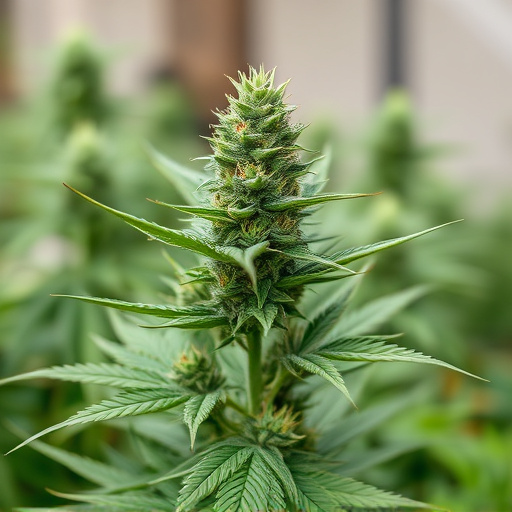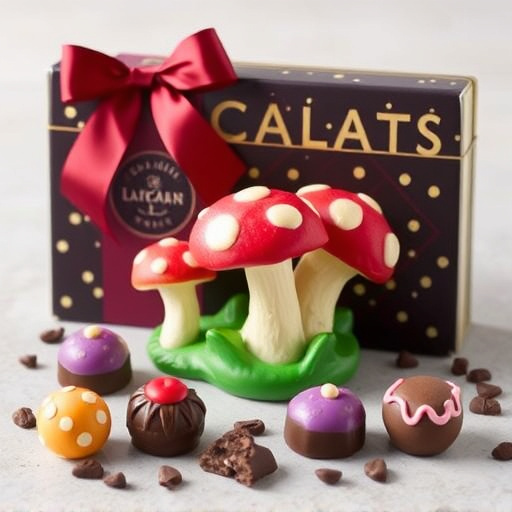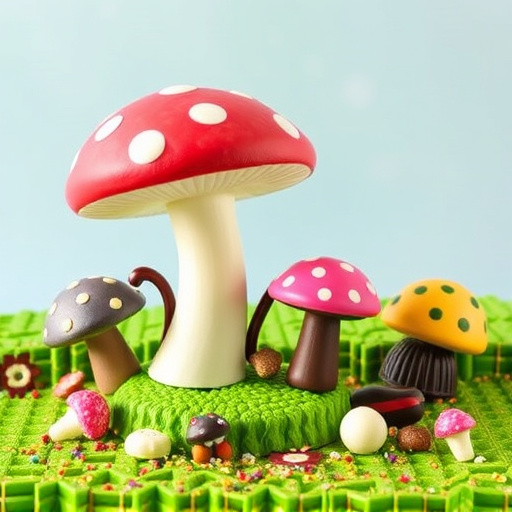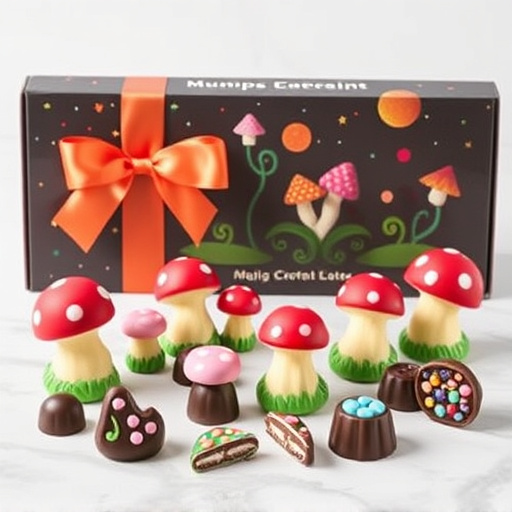The global legal status of magic mushroom chocolates varies widely due to cultural and regulatory differences, with some countries legalizing or decriminalizing them for medical purposes while others maintain strict prohibitions. The vegan magic mushroom chocolate market combines culinary creativity and wellness trends, utilizing organic ingredients and sustainable farming practices. This market's growth aligns with a surge in demand for plant-based alternatives, driven by consumers seeking healthier, ethical options. Despite varying legalities worldwide, these chocolates represent a fusion of sensory delight and the acceptance of plant-based lifestyles, offering an exciting glimpse into expanding psychedelic-inspired treat options within legal frameworks.
“Uncover the captivating world of vegan magic mushroom chocolates—a delightful fusion of mindfulness and indulgence. With a growing global interest in psychedelic foods, this article explores the current legal landscape surrounding the unique combination of chocolate and psilocybin mushrooms. From production methods to consumer trends, we delve into the rise of plant-based alternatives, focusing on the key ingredients and processes that make these treats accessible without compromising ethics or quality. Get ready to discover a world where vegan magic is more than just a name.”
- Current Legal Landscape: Exploring the Global Perspective on Magic Mushroom Chocolates
- Key Ingredients and Production Processes: Unveiling the Vegan Approach
- Market Trends and Consumer Preferences: The Rise of Plant-Based Alternative Treats
Current Legal Landscape: Exploring the Global Perspective on Magic Mushroom Chocolates
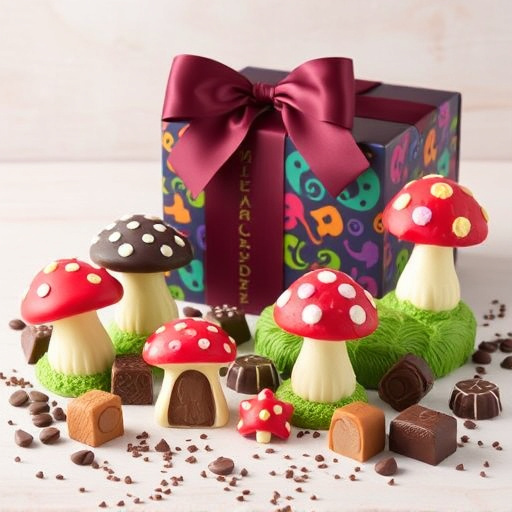
In terms of the legal status of magic mushroom chocolates, the global landscape is diverse and dynamic. While some countries have embraced psychedelic substances for medical or research purposes, including those derived from mushrooms like psilocybin, others maintain stringent prohibitions against them. This divergence stems from differing cultural perspectives, historical contexts, and regulatory frameworks.
In recent years, there’s been a growing trend towards decriminalization and legalization of magic mushrooms for therapeutic use in several nations. This shift is driven by mounting scientific evidence highlighting their potential in treating mental health conditions such as depression and anxiety. However, the Legal Status of Magic Mushroom Chocolates remains a complex issue, with regulatory bodies grappling with challenges related to dosage, safety standards, and public perception.
Key Ingredients and Production Processes: Unveiling the Vegan Approach

The vegan magic mushroom chocolates market is a delightful fusion of culinary innovation and wellness trends. When it comes to key ingredients, these treats often feature a blend of organic cacao, coconut milk, and a variety of mushrooms known for their psychoactive properties, such as Lion’s Mane, Chaga, or Reishi. These mushrooms are carefully selected for their health benefits, including potential cognitive enhancement and immune support. The production process involves meticulous crafting to ensure purity and potency.
Vegan approach to magic mushroom chocolates emphasizes transparency in sourcing and manufacturing. Many brands opt for organic, non-GMO ingredients, and some even employ sustainable farming practices for their mushrooms. This trend also reflects a growing interest in the legal status of magic mushroom chocolates. As regulations around psychedelic substances evolve globally, these vegan treats offer an accessible way to explore the potential benefits of mushrooms while adhering to legal frameworks.
Market Trends and Consumer Preferences: The Rise of Plant-Based Alternative Treats

In recent years, the market for plant-based alternatives has seen a significant surge, with consumers increasingly demanding healthier and more sustainable food options. This trend extends beyond mere dietary choices; it reflects a broader consumer preference for products that align with ethical values, environmental sustainability, and wellness. One notable area of growth is in the realm of treats and indulgences, traditionally dominated by animal-derived ingredients. The demand for vegan alternatives has led to innovative product development, including magical mushroom chocolates—a unique twist on conventional desserts.
As the legal status of magic mushrooms varies across regions, with some places embracing their therapeutic potential while others maintain strict regulations, manufacturers are navigating these complexities. However, the growing acceptance of plant-based lifestyles and the curiosity surrounding psychedelic-inspired treats have opened doors for creative culinary exploration. Vegan magic mushroom chocolates represent a fusion of these trends, offering consumers both a delightful sensory experience and a glimpse into the expanding world of legal, plant-based indulgences.
The global landscape for magic mushroom chocolates is evolving, driven by shifting consumer preferences and a growing appetite for plant-based alternatives. As the legal status of these treats varies across regions, understanding key ingredients and production processes becomes essential. Market trends indicate a strong demand for vegan options, reflecting a broader shift towards sustainable and ethical consumptions habits. By embracing innovative approaches to crafting magic mushroom chocolates, manufacturers can cater to this expanding customer base, ensuring both legality and popularity in the evolving market.
